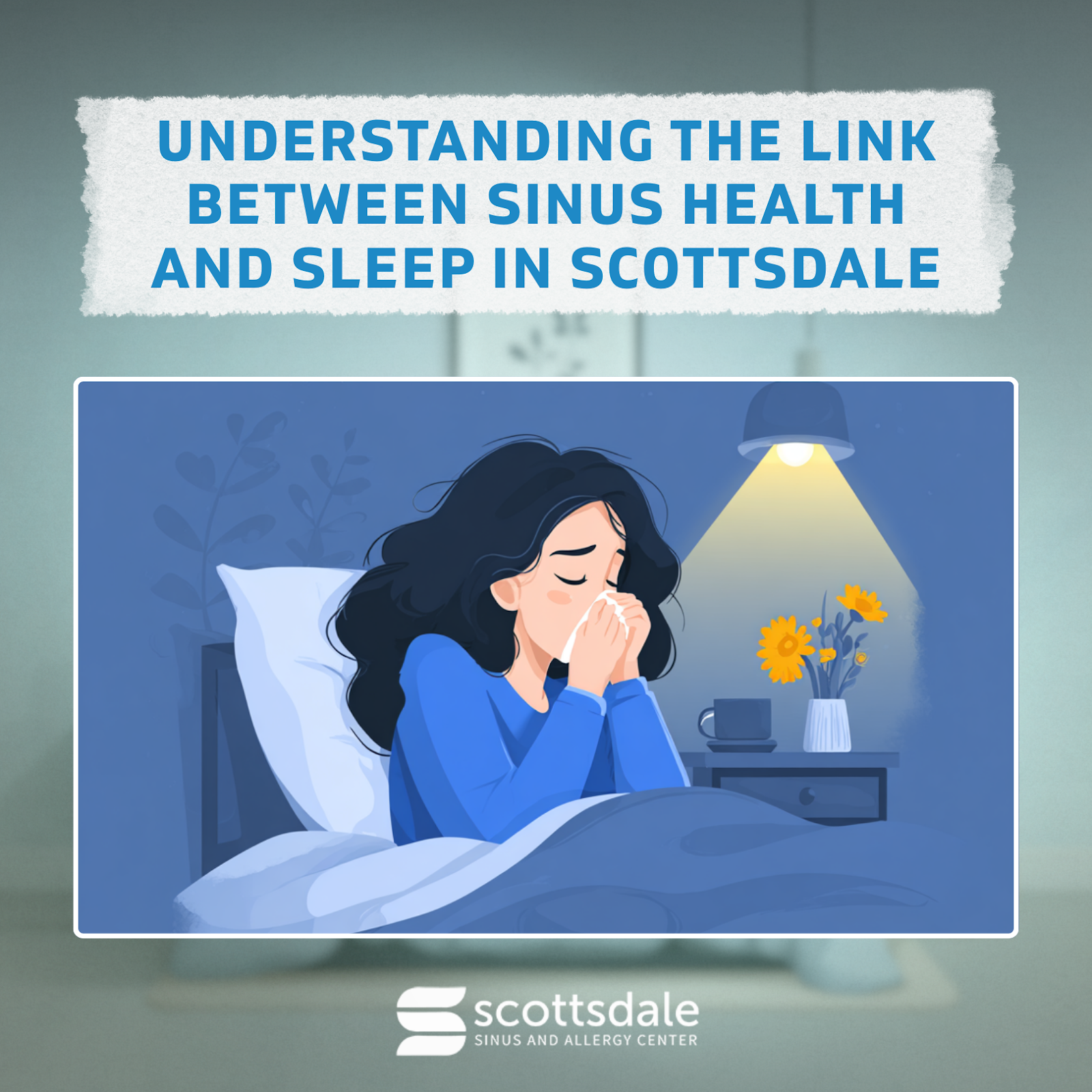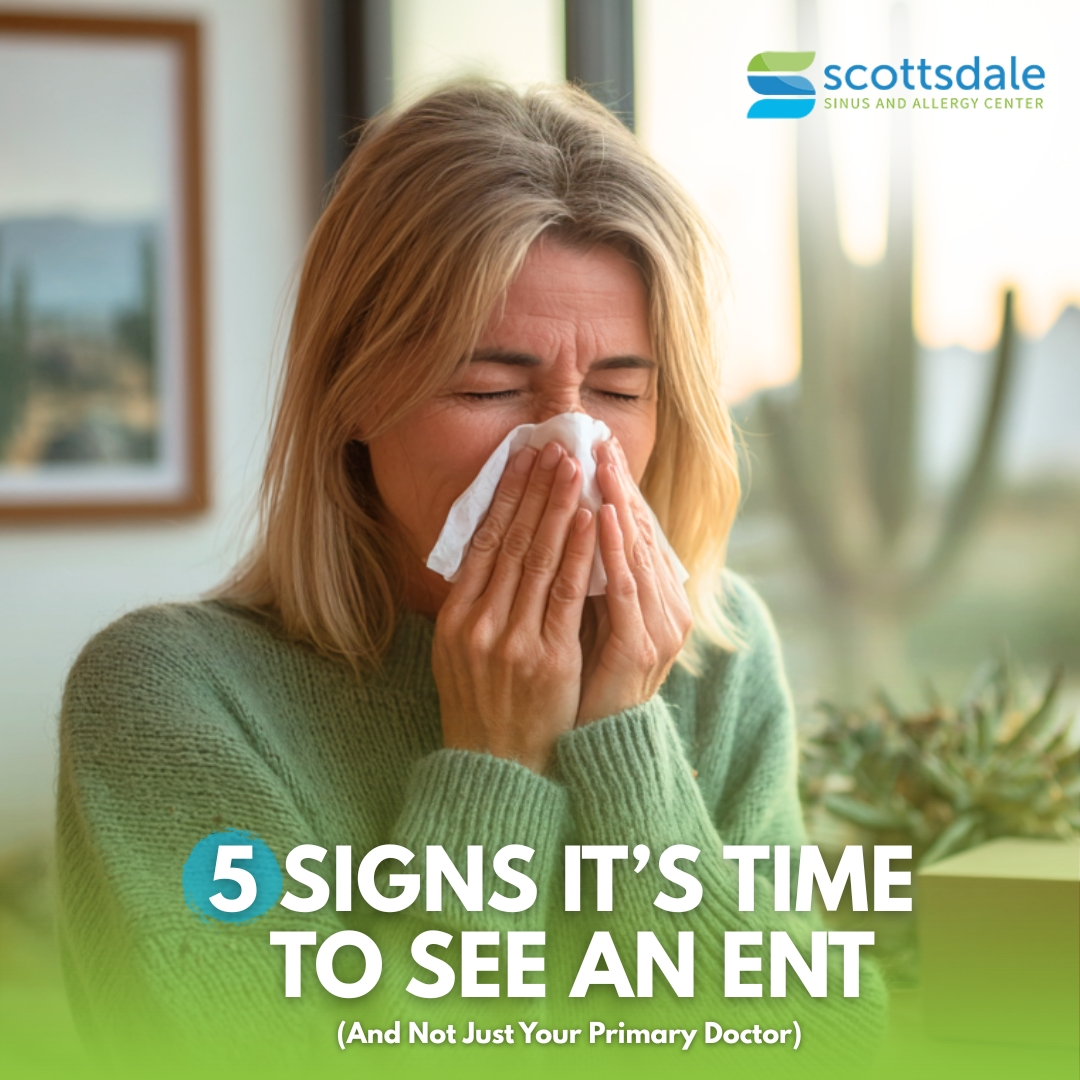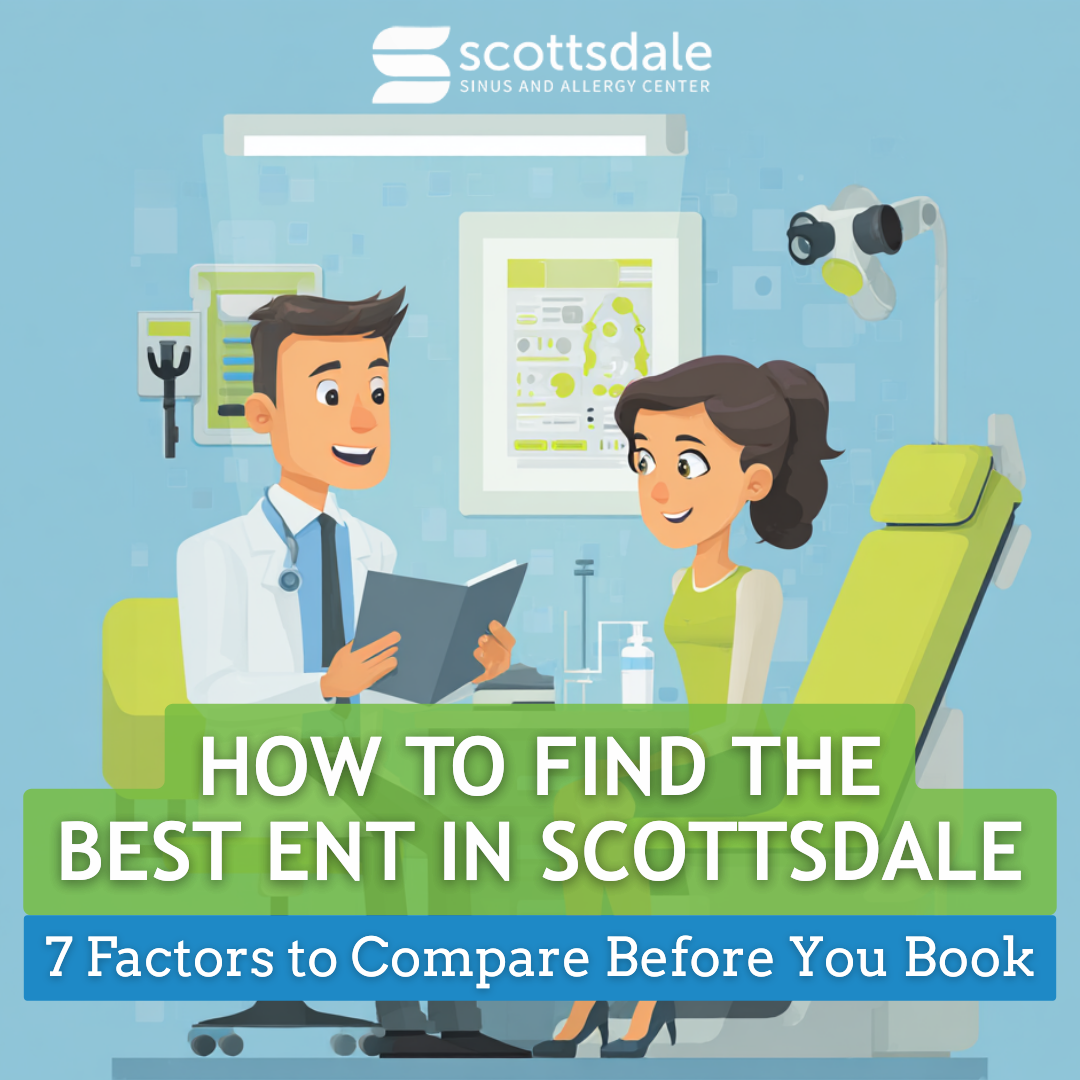.png)
Understanding the Link Between Sinus Health and Sleep in Scottsdale
If you live in Scottsdale or nearby Tempe, you know how important a good night’s rest is for keeping up with work, family, and the desert heat. But for many people, sinus problems get in the way of quality sleep. From constant congestion to waking up with a dry mouth or headache, sinus issues can quietly affect your energy and health.
The connection between your sinuses and your sleep is stronger than you might think. Understanding how they work together—and when it’s time to see an ENT in Scottsdale for sleep problems—can help you take steps toward better rest and better overall health.

How Sinus Issues Affect Sleep
Your sinuses play a key role in breathing. When they’re blocked or inflamed, airflow becomes restricted, making it harder to breathe comfortably while lying down. Common ways sinus problems interfere with sleep include:
- Nasal congestion: Swollen tissues and mucus buildup make it difficult to breathe through your nose, forcing you to mouth-breathe.
- Snoring: Restricted airflow increases the chance of loud, disruptive snoring.
- Sleep interruptions: Frequent waking from congestion or postnasal drip makes sleep less restorative.
- Dry mouth and sore throat: Breathing through your mouth can cause irritation and leave you feeling parched in the morning.
For some, untreated sinus problems can even worsen conditions like sleep apnea, which increases health risks over time.
Signs Your Sleep Problems May Be Sinus-Related
It can be hard to tell whether poor sleep is caused by stress, lifestyle, or sinus issues. Some red flags that point to sinus health include:
- Chronic nasal congestion, especially at night
- Headaches or facial pressure in the morning
- Frequent waking due to difficulty breathing
- Daytime fatigue despite going to bed early
- Ongoing snoring that disturbs your household
If these symptoms sound familiar, it may be time to look beyond over-the-counter remedies and consult an ENT in Scottsdale for sleep problems.
Why Sinus Sleep Issues Are Common in Scottsdale and Tempe
The dry desert climate and seasonal pollen in the Valley can take a toll on sinuses. Scottsdale residents often face:
- Low humidity: Dry air can irritate sinus passages and worsen congestion at night.
- Dust and allergens: Seasonal changes bring allergens that inflame the nasal lining.
- Temperature shifts: Moving between hot outdoor air and air-conditioned spaces can trigger sinus flare-ups.
Residents of Tempe and other nearby areas face the same challenges, which means that addressing sleep health in Tempe often requires managing sinus health as well.
How an ENT Can Help Improve Sleep
The good news is that sinus-related sleep issues are treatable. An ENT can identify the root cause and recommend options such as:
- Medication management: Prescription sprays or short-term antibiotics for infection or inflammation.
- Allergy testing and treatment: Identifying triggers and creating a plan to reduce reactions.
- Saline rinses or humidifiers: Helping keep nasal passages moist and clear.
- Minimally invasive procedures: Options like balloon sinuplasty can open blocked sinuses, improving airflow and reducing nighttime congestion.
These treatments can make a big difference not only in how you breathe, but also in how you sleep and feel each day.
Better Sinus Health, Better Sleep
Sinus problems don’t just affect your nose—they affect your nights, your energy, and your quality of life. If you’ve been struggling with poor rest, chronic congestion, or morning headaches, it’s time to consider whether your sinuses are playing a role.
At Scottsdale Sinus and Allergy Center, we help patients explore options to manage sinus and sleep concerns. With modern diagnostics and personalized care, our team offers evidence-based evaluation and treatment options designed to improve sinus and sleep health.
Don’t let sinus problems keep stealing your rest. Schedule a consultation today and take the first step toward clearer nights and brighter mornings.
Prepare for Allergies in Spring 2022
The information provided in this article is for informational and educational purposes only and does not constitute medical advice. It is not intended to diagnose, treat, cure, or prevent any disease or medical condition. Always seek the guidance of your physician or other qualified healthcare provider with any questions you may have regarding a medical condition or treatment.
Results may vary: Treatment outcomes and health experiences may differ based on individual medical history, condition severity, and response to care.
Emergency Notice: If you are experiencing a medical emergency, call 911 or seek immediate medical attention.





.png)
.png)
.png)
.png)
.png)
.png)
.png)
.png)
.png)
.png)
.png)
.webp)
.webp)
.webp)

.webp)





.webp)
.jpeg)



%20(1).webp)

.webp)





